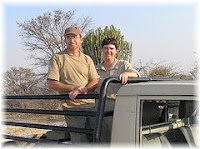I met Becky McCray online. I’m sure happy I did! Becky owns a cattle ranch and a liquor store and www.smallbizsurvival.com She sat down for an interview, and it’s my pleasure to share it with you now.
HI Becky. There’s a whole lot you do – why not start out and tell us what a normal day looks like for you.
I’m not sure I have a normal day! Some days I work the liquor store, other days I work exclusively from online, consulting for small towns and small businesses. Some days I’m helping round up calves or fixing fence. And some days I’m volunteering on a board or committee. Some days, I do all of those things!
And don’t tell anybody, but I love it. I like helping with the cattle, and then heading to a board meeting to sit next to some important attorney with his Blackberry and his tie. It gives me a sense of fulfilling work.
We like to know who our guests are. Tell us about yourself please.
I’m a small town gal, an entrepreneur, and a high tech geek. My husband and I live in the tiny town of Hopeton, Oklahoma, with fewer than 30 people. My store is ten miles away in Alva, which has about 5,000 people. Most of my family lives right in this area of Northwest Oklahoma, but while I was growing up, our family also lived in Oklahoma City, and Luling and Palmer in Texas.
Both my parents were entrepreneurs, so it’s not surprising that I am, too. I started a car washing service in junior high, and it seems like I have had some type of business ever since. In the mean time, I’ve worked for my local Girl Scout council, my workforce development council, my local newspaper, and even as a city manager for a small town. You know how it is in a small town; you do whatever it takes to make a living.
Okay – we are Rural America here in Franklin County Iowa. What can Small Biz Survival do for us?
You can read and learn from hands-on articles on running a business, pick up some ideas for new businesses, hear other people’s point of view from their small town, and even brag a bit on your success in our Brag Basket on Fridays. Small Biz Survival is written by rural small business owners, for rural small business owners. Our sole focus is to help your business to survive, improve, and grow. That includes topics we are talking about in this interview, like fighting brain drain, using interactive marketing, and promoting agritourism.
You might also want to download the free ebook, 20 Small Business Ideas for Small Towns,http://www.smallbizsurvival.com/2008/05/small-business-ideas-for-small-towns.html
There’s no fee, no sign up, just a free download. The content all came out of business ideas I shared on Small Biz Survival, and the free download is sponsored by Network Solutions. If you download it, you also get a discount code good for 25% off web hosting from Network Solutions, so that’s a bonus.
Your an owner of a liquor store and cattle ranch. That sounds like an interesting juxtaposition! What four most valuable lessons have you learned from running those two businesses?
The most valuable lesson from running both at once is organization! This is one lesson I really have to work at learning properly.
The store is all about customer service and experience, so I’ve learned to listen to customers and respond. It’s also a terrific teacher of basic small business lessons. I’m always learning something that I can share with my readers.
The cattle ranch is all about working with nature. You can try fighting against nature, but that’s a losing game. So the lesson is to pay attention to what works naturally, and use that to your advantage.
This whole social media thing is relatively new to small town America. Most of our businesses have a website. What should be their first few steps into the field?
Whether you are looking for customers online or not, you can benefit in huge ways from interacting with others. You can expand your horizons and your perspective, connect with vendors and other partners, and feel connected with colleagues literally around the world.

There are three places you could start. You don’t have to do all three; you can just pick one, if you want. The first is Twitter. It can help you make personal connections with other people. It’s kind of like a water cooler in a big business; it’s the place you connect to just check in, share a little, or feel connected to the wider world. The second place you could start is publishing a blog to position yourself as an expert. Blogging is like a newsletter or regular article you put out for people everywhere to read. If you just started by answering the questions that customers ask you most often, you could probably have more than enough material to write about. The third is Facebook. No matter how small your town is, I’ll bet there are some local people on Facebook. You’ll also find colleagues from other towns, people who used to live in your area, and even friends from college. You can use Facebook just to connect and stay in touch with those people.
None of these services cost anything to use. You can create an account and put up your profile for free. Then just start making friends. Don’t focus on selling. Treat it more like a party at someone’s house. Make conversation and connect with other people on a personal level. Even then, these tools may not be for you. Everyone uses social media in their own way. My best advice is to just play around to learn new things.
African hunting safari – now how did you get into that?
My husband is a hunter, basically all his life. He also grew up reading the Robert Ruau rk stories about hunting in Africa, so he set a goal to do it. He saved and planned, and in 2003 we made our first trip to Namibia. We’ve been back three more times. Each time, we see more parallels between our local development issues and the issues faced in Namibia.
Now, of course, we have friends there. And I have a small group of clients in Namibia that I help with websites and online marketing. It has really expanded our perspectives to have this kind of a global connection.
How can we get our kids to come back to the community after college? What do we need to be doing to help develop our community for them too?
Engage them. Put young people in charge of projects. Involve them in “adult” meetings, like Rotary or the City Council. Setup a job shadowing or mentoring program with local businesses. Do everything you can to make young people a vital part of everything in the community. It’s not just about projects or assets. It’s about building a sense of belonging and community. That will stick with kids long after they head to college, and that is what will make them want to return.
You can also go further to bring them back, with events focused on homecomings. You can hold all-school, all-year reunions. If you can compile a mailing list of interested alums, you can market not just your events, but also your town. Your city government might be able to offer inexpensive lots for building or other move-back incentives. You have to be creative about it.
I see that you have some pretty serious grant writing skills. Can you give novices a couple of places to start when looking to write grants?
One good place to start learning is on Charity Channel. They have a pretty good list of internet resources, Websites every grants professional should have bookmarked:http://charitychannel.com/Articles/ArticleCategories/GrantsandFoundationsReview/tabid/138/xmmid/822/xmid/1980/xmview/2/Default.aspx
Several other free sources will email you grant leads. C. Lyn Larson with HUD in Oklahoma does an email list. You join by sending an email to c.lyn.larson@hud.gov. Miami Dade County also issues a weekly grants email, and you can sign up at their website: http://www.miamidade.gov/grants/forms/gmail_page.asp. You can also sign up for updates fromGrants.gov. They have a regular newsletter, a blog, and a service that will email opportunities to you based on your keywords.
Successful grant writing combines careful research, detailed planning and budgeting, creative writing, and attention to detail. If you don’t have all of these skills and qualities yourself, start putting together a team who can work with you. That’s how I do it; I work with a team.
What is this collaboration with US News and World Report? Tell us more please!
US News added an Outside Voices project to bring in independent bloggers. Matthew Bandyk writes at US News, and he follows me at Small Biz Survival. When they started this project, Matthew invited me to join. You’ll find articles from me that focus on hands-on small business advice. And it just sounds cool to say that I’m working with US News from small town Oklahoma!
One last thing, agritourism – what advice do you give towns looking to promote agritourism?
Agritourism means more than guest ranches or hay mazes. It means opening up and sharing part of what makes life here special. Make sure you know what your cultural assets are. That includes everyone from your cheese maker to your corn husk doll artist, and your old-fashioned farmer to your winery. Then find ways to promote those assets. Check with your state tourism group. I’ve found that Oklahoma’s Department of Tourisms exceptionally helpful to both individuals and communities. Your state organization can help you find out how to attract group tours, how to get into the state publications, and how to improve your attractions.
Promoting online is an absolute requirement, and for bonus points, use audio and video in addition to your text and pictures. For example, create audio tours; shoot short video clips of attractions, or interview interesting locals. Share that slice of life online. I did a whole workshop on this at the Red Carpet Country tourism association annual meeting, and I think it opened people’s eyes to the potential that’s out there. It’s all about telling a story about your country life to people who want to share in that story.
Thanks Becky – you have no idea how helpful this will be to our community. I think this interview will be a casebook example of the domino theory (knock one down, the rest will fall).
The best of luck to all of you in Franklin County!


Hi Deb,
It was good toread this interview. Network Solutions is happy to sponsor Becky’s free download and that her story emphasizes the importance of access to good technology for people in geographically to be able to connect with others.
Thanks,
Shashi